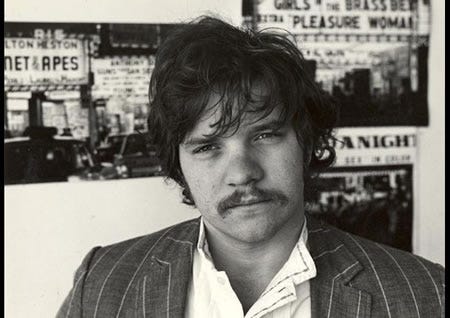I couldn’t sleep last night, so I just got dressed and went to my diner on Greenwich Avenue to have a cup of herbal tea. In case I can go back to sleep later. I was worried about yesterday’s meeting with Doctor Menninger, my psychiatrist, for the past three years. I suffer from depression that doesn’t stop. In the middle of the night, while I was in bed, I often started crying for no reason; at least in my mind, I couldn’t find the source of this misery. He has given me a prescription, and I have been taking it strictly, but still, I can’t remove the darkness that seems to be tattooed on my brain. Being a rather vain man, people, especially girls, have commented that I have developed bags under my eyes, which are a pretty new visual for me. The utensils at this diner are very shiny, and I can see my reflection on the back of the spoon. The first thing I notice is the bags. My face is ashen, and the darkness under my eyes disturbs me. Doctor Menninger thinks I should think of other things besides yours truly.
I only know myself and don’t know much about anything else. When I feel anything, emotionally speaking, it is always a bad feeling. If I had one philosopher or writer I followed, it’s Amy Vanderbilt. Her “Complete Book of Etiquette” is as close to the Bible for me as possible. I found this quote in the book: “Good manners have much to do with emotions. To make them ring true, one must feel them, not merely exhibit them.” That and “do not speak of repulsive matters at the table” pretty much rule my thoughts on how one should interact with the world today. The problem with me is how far can I go with my emotions in a public space? My awkwardness gets in the way when I wish to express myself in a particular fashion, and I usually have to re-think how I should say or convey my feelings so that it won’t disturb or put people off.
When I want to communicate, that is the time or moment when I fail to do so. This, of course, triggers my anxiety, leading to crippling depression. The Vanderbilt book is an excellent guide for me to follow, and also I can obtain information in the book in bite-size portions. Nonetheless, sometimes reading is very difficult, and I tend to read words off a computer or page. I tend to wander into some abstract zone, where I find myself trapped with (again) the anxiety that seems to rule my conscience. Going to the cinema helps me in that I don’t have to think, it is just sitting there in front of a large screen and focusing on the images, and if I want, I can hear and digest the words coming from the actor’s words. “Taxi Driver” is a film I have seen at least 25 times. I, of course, have the DVD, but when it originally came out in 1976, I would sit in a theater and watch that film repeatedly. During the first viewing, I wasn’t practically paying any attention to it; the images on the screen were just background noise, so I could sit in the darkness and think or let my mind wander. Over time and repeated screenings, I started to pick up the main character's anxiety, which, oddly enough, helped me through the day.
The only film besides “Taxi Driver” that hugely affected me was “The Invisible Man,” starring Claude Rains, directed by James Whale, and even the great Preston Sturges had a hand in writing the script. I think what appealed to me was Rains’ interpretation of the invisible man and how one can be there but not there. In other words, I often felt invisible to my peers or in a crowd, and it’s moments like these where I realize it doesn’t matter if I’m here or not. I often wonder if I should enter the world and subject myself to a cause or even a position in life. Still, the truth is that I wouldn’t be in it for that cause but more to fill myself with a duty to prove that I’m alive and somehow I can make a difference out there. Then again, perhaps it is appropriate to sit here and look at my reflection off the back of a spoon.






